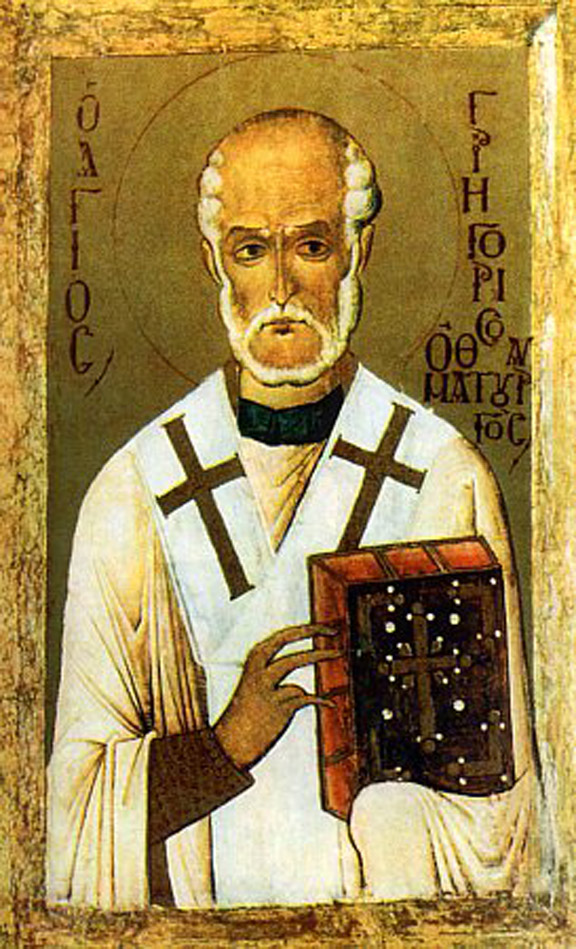ST GREGORY THE WONDERWORKER OF NEOCAESAREA
“(born c. 213, Neocaesarea, Pontus Polemoniacus [now Niksar, Turkey]—died c. 270, Neocaesarea; feast day November 17), Greek Christian apostle of Roman Asia and champion of orthodoxy in the 3rd-century Trinitarian (nature of God) controversy. His Greek surname, meaning “wonder worker,” was derived from the phenomenal miracles, including the moving of a mountain, that he reputedly performed to assist in propagating Christianity.
A law student, Gregory was introduced to Christianity through studies with the leading Christian intellectual of his time, Origen, at Caesarea (near modern Haifa, Israel). On his return to Neocaesarea, Gregory was made a bishop and committed his life to Christianizing that largely pagan region. The Roman emperor Decius’ persecution (250–251) compelled Gregory and his community to withdraw into the mountains, and with the return of normal conditions he instituted liturgical celebrations honouring the Decian martyrs.” [https://www.britannica.com/biography/Saint-Gregory-Thaumaturgus]
Once “when a persecution against Christians began under the emperor Decius (249-251), St Gregory led his flock to a faraway mountain. A certain pagan, knowing about the hiding place of the Christians, informed the persecutors. Soldiers surrounded the mountain. The saint went out into an open place, raised up his hands to heaven and ordered to his deacon to do the same. The soldiers searched the whole mountain, and they went several times right past those praying, but not seeing them, they gave up and went away. In the city they reported that there was nowhere to hide on the mountain: no one was there, and only two trees stood beside each other. The informer was struck with amazement, he repented of his ways and became a fervent Christian.” [https://oca.org/saints/lives/2016/11/17/103315-st-gregory-the-wonderworker-of-neocaesarea]
It is believed that Mount St Gregory (and by extension Cape St Gregory) on the north shore of the outer Bay of Islands was so named by early Portuguese, Basque or French fishermen because it reminded them of the above barren mountain with nowhere to hide.

